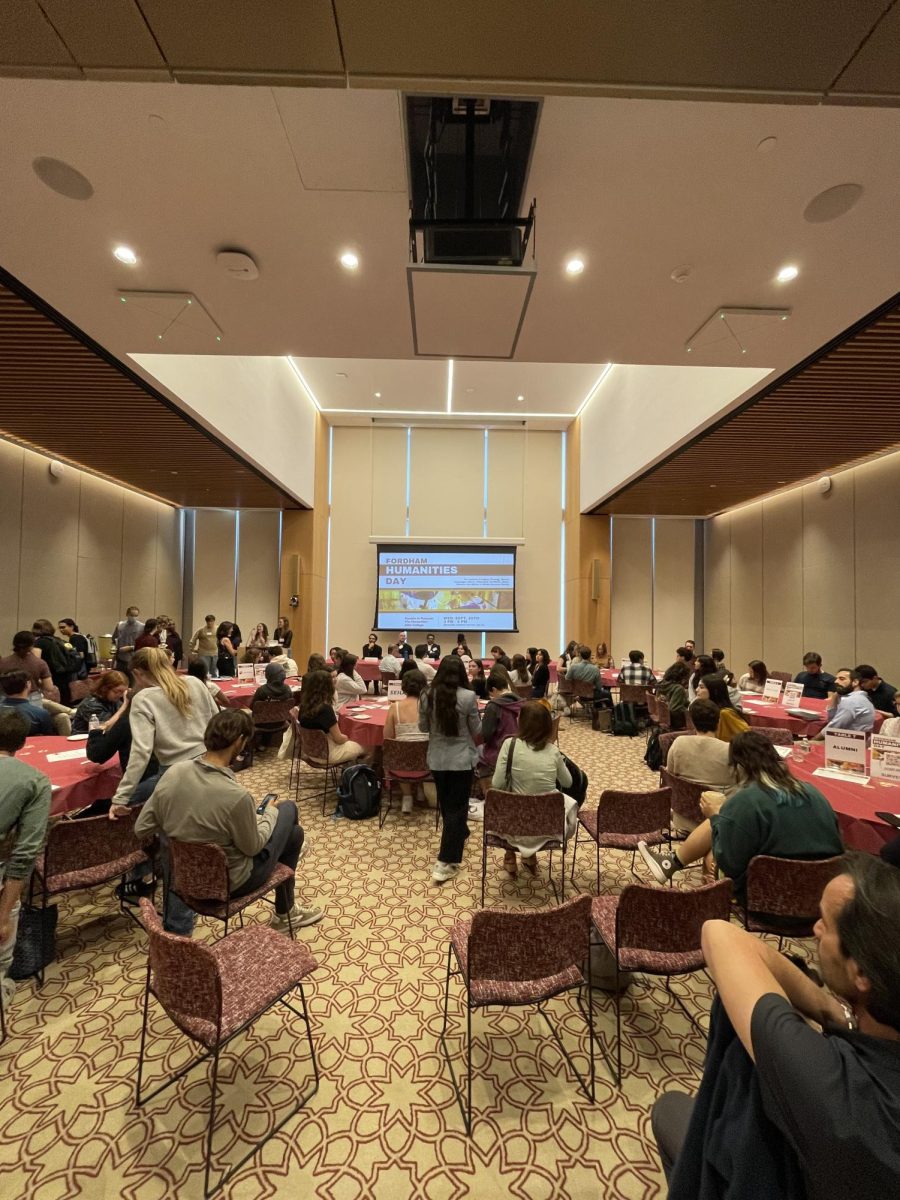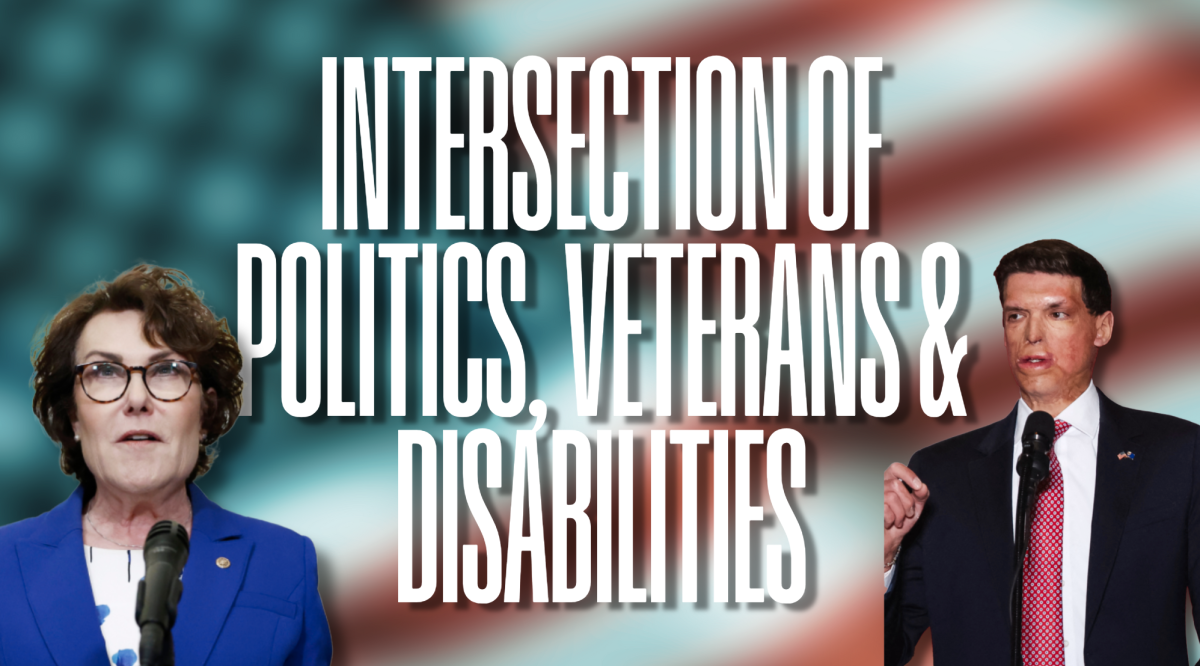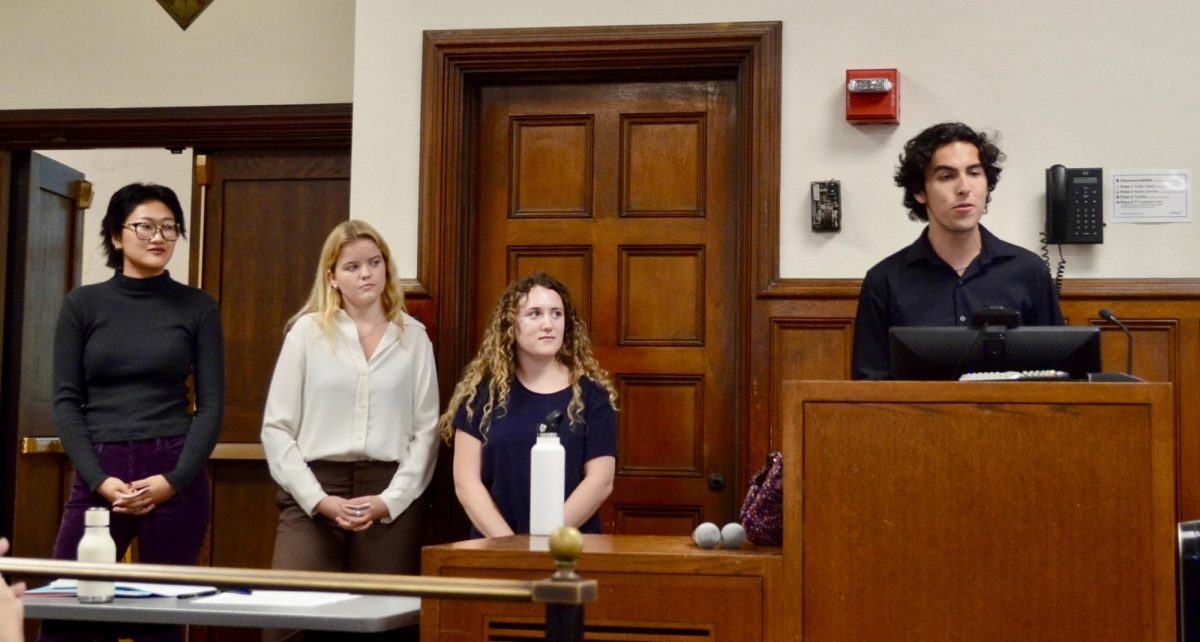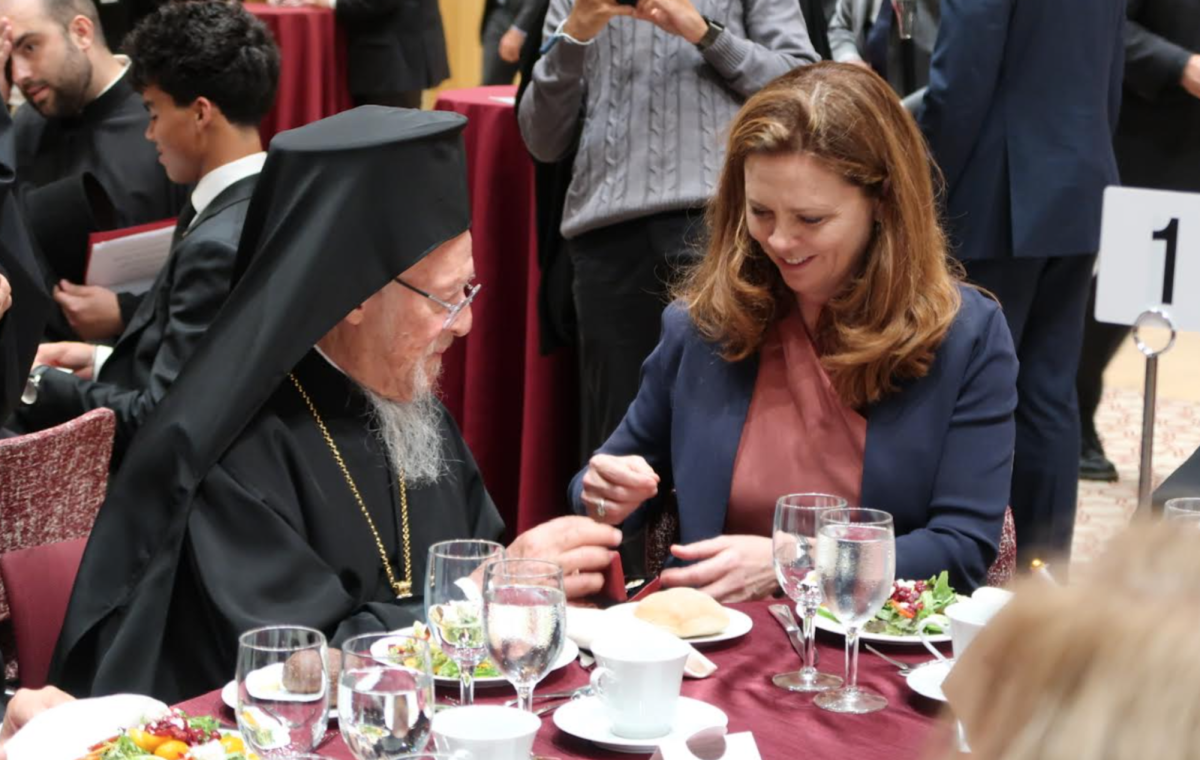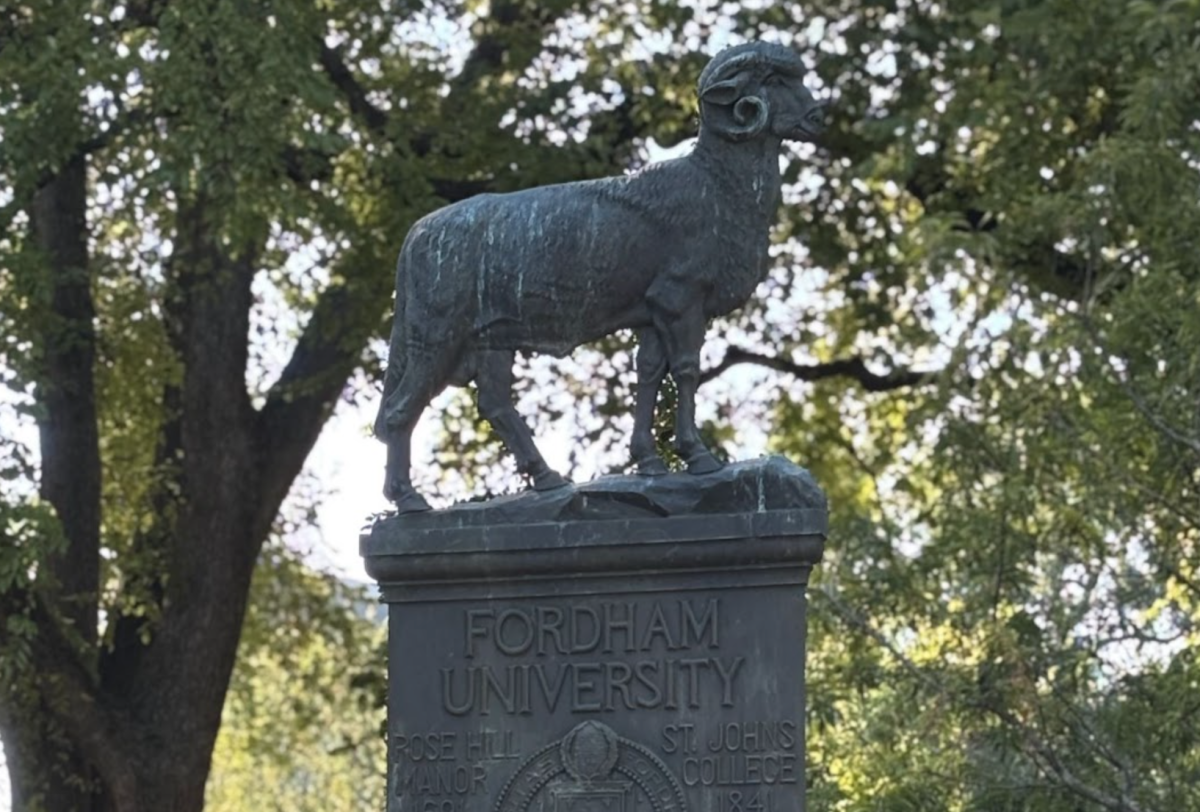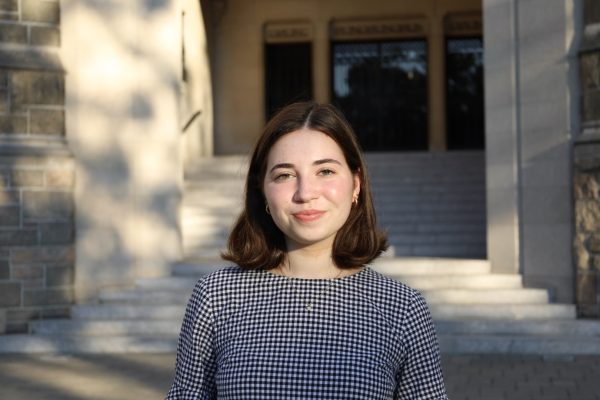Fordham hosted the first annual Humanities Day on Sept. 20. “Passion to Purpose: The Humanities After College” was curated for students majoring in the humanities and featured an alumni and faculty panel and employer and alumni roundtable networking.
The idea for Humanities Day was conceived when Professor Brenna Moore, department of theology, reached out to faculty in the humanities to figure out how they can best support students in disciplines, such as theology, English, classics and history, given the increasing pressure for students to study STEM and Business. After brainstorming, faculty members hosted Humanities Day to celebrate how the humanities can lead students to successful careers post-graduation. Marianna “Mari” Apazidis, FCRH ’24, and Leah Langhoff, FCRH ’24, volunteered to organize the event in collaboration with the Career Center and the Fordham Alumni Association.
“The planning process for the event involved sourcing alumni, faculty and employers to participate in the panels and roundtables. We had an outpouring of alumni who were interested in joining us for the event — they were so enthusiastic that something like Humanities Day was finally in the works! We had a lot of support from our student workers at the Career Center, Mari and Leah and Professor Moore in distributing this marketing across campus,” said Allyson Blatz, assistant director for student engagement.
The event facilitated a large turnout — students gathered in the back of the room because all of the tables were at capacity.
“When I was originally booking a space for Humanities Day in the summer, I thought we would have ample room in the third floor multipurpose room of the McShane Campus Center, as we were only anticipating 50 attendees,” said Blatz. “It was mind blowing to see over 80 students at the event and tons of faculty. I’m still shocked and overjoyed by the turnout!”
Moore and Blatz introduced a panel of seven alumni who majored in the humanities, and Apazidis and Langhoff facilitated a Q&A. Alumni shared insight into their career and how the humanities helped them discover their passions and morals.
Alumni represented a variety of employers, including the United Nations, MacMillan Publishers and the U.S. Department of Justice. The alumni panel was followed by a faculty panel, which featured four current faculty members; students were encouraged to ask questions.
“From a student perspective, we wanted to show humanities students that they can foster a successful future post-undergrad. In the job market, it can feel as though STEM and business degrees are valuable whereas other degrees are significantly less valuable. We wanted students to know that plenty of humanities undergraduates have cultivated successful careers with their degree,” said Apazidis.
Similarly, Blatz said she is optimistic that Humanities Day fostered a sense of relief among students who may have been told that their degree results in a dead-end and leads to destitute opportunities post-graduation.
“I remember how hesitant I felt when I decided to major in English and French Language & Literature as an undergraduate student — largely because of the rhetoric I absorbed surrounding the ‘uselessness’ and economic irrelevance of humanities degrees. The humanities play a pivotal role in helping us understand who we were, who we are and who we can be and deserve to be celebrated,” said Blatz.
Cailee Zeraat, FCRH ’25, an English major, found Humanities Day to be an ideal opportunity to network with students, faculty and alumni as well as commemorate the value of a humanities degree.
“I just transferred to Fordham this semester and I am trying to meet peers and faculty in humanities fields. When I got an email for this event, I recognized it as the perfect opportunity to learn more about the humanities at Fordham and potentially meet some interesting alumni who could share their experiences and how their choice of major helped them in their careers,” said Zeraat.
Humanities Day also featured an opportunity for students to network with employers through roundtable discussions. Employers included AlphaSights, The Boys’ Room, MacMillan Publishers, The New-York Historical Society and Phillips.
“I had some insightful conversations with a few of the alumni speakers and was able to connect with them on LinkedIn and other social media platforms. Rather than help me feel more decisive in my career path, it actually opened up some other possibilities that I hadn’t been considering,” said Zeraat.
The Career Center is working on a Humanities Student Ambassadors (HSA) program — the idea was devised by Apazidis and Langhoff. The program will work to organize more events, workshops and networking opportunities for humanities students.
“It’s our goal for the HSAs to develop professional development programming that speaks to the specific needs of humanities students,” said Blatz.
“Mari and Leah wanted to build this out, and the Career Center was willing to work with them as an extension to our current Fordham Career Ambassadors (FCA) program,” said Cheretta Robson, senior associate director at the Career Center.”
“We hope to engage students and make them value the power of their humanities education to connect more opportunities with employers and to encourage students to use the Career Center resources,” Robson said.
Although the Career Center is still building out the idea of the HSAs program, interested students can attend the Career Center’s “Oh the Humanities: How to Put Your Humanities to Work” workshop on Oct. 12.





































































































































































































